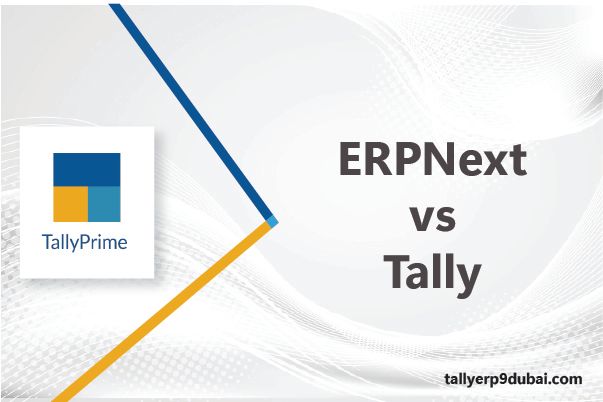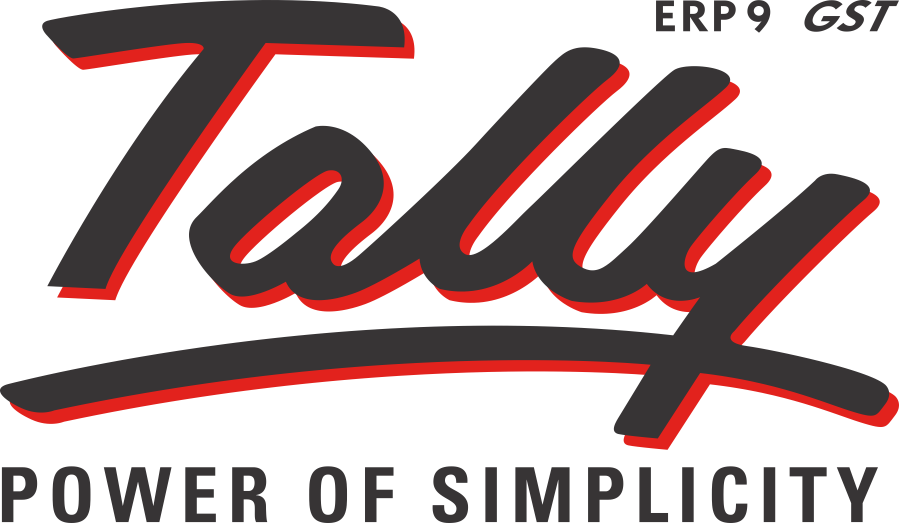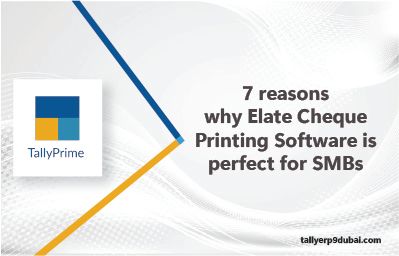
Admin
2023-06-06

In today's fast-paced business landscape, having a reliable Enterprise Resource Planning (ERP) system is essential for efficient and streamlined operations. In the UAE, two popular ERP software options are ERPNext and Tally. While both offer comprehensive business management solutions, they have distinct differences that cater to different business needs. In this blog post, we will compare ERPNext and Tally to help you make an informed decision about which ERP software is best suited for your business in the UAE.
Functionality and Features:
ERPNext is a comprehensive open-source ERP software that covers a wide range of functionalities, including accounting, inventory management, sales, procurement, project management, human resources, and more. It provides a centralized platform for managing various aspects of your business operations. ERPNext is highly customizable and allows businesses to adapt the software to their specific requirements.
Tally Prime, on the other hand, is primarily focused on accounting and financial management. It is known for its robust accounting features, such as ledger management, financial reporting, inventory management, taxation, and payroll. Tally is particularly well-suited for businesses that require in-depth accounting functionalities and have complex financial requirements.
Scalability:
When it comes to scalability, ERPNext has an advantage. It is designed to cater to businesses of all sizes, from small startups to large enterprises. ERPNext provides the flexibility to manage multiple departments, locations, and business units within a single system. As your business grows, ERPNext can accommodate increased data volume and handle complex operations effectively.
Tally Software, while suitable for small to medium-sized businesses, may face limitations when it comes to scalability. It may not be as well-equipped to handle the needs of large enterprises or businesses with significant expansion plans.
Customization and Integration:
Both ERPNext and Tally offer customization options to adapt the software to your specific business needs. ERPNext, being an open-source software, allows users to customize and extend its functionality as per their requirements. This level of customization empowers businesses to tailor the ERP system to their unique processes and workflows.
Tally also offers customization options but to a lesser extent. While it provides some flexibility in terms of customization, it may not be as extensive as ERPNext. However, Tally offers integration capabilities with other software applications, allowing seamless data flow between different systems.
Tax Compliance:
Tax compliance is a critical aspect of ERP software, especially in the UAE, where tax regulations are stringent. Both ERPNext and Tally are equipped to handle tax compliance requirements.
ERPNext provides comprehensive tax management features, including VAT calculation, filing, and reporting. It supports UAE-specific tax regulations and ensures businesses stay compliant with the local tax laws.
Tally accounting software, being a popular accounting software in the UAE, is well-known for its strong tax compliance capabilities. It supports VAT calculation, filing, and reporting, making it suitable for businesses operating in the UAE market.
Support and Community:
ERPNext has an active and supportive community of developers and users. The community-driven nature of ERPNext ensures continuous development, updates, and bug fixes. Support is available through community forums, documentation, and paid support packages.
Tally, being a well-established software in the UAE, also offers support options through their website, documentation, and customer service channels.
Conclusion:
Both ERPNext and Tally offer robust ERP solutions with their unique strengths. ERPNext provides a comprehensive and customizable platform suitable for businesses of all sizes, while Tally excels in accounting and financial management functionalities.
When choosing between ERPNext and Tally, consider factors such as the size and complexity of your business, your specific requirements, scalability needs, and the level of customization desired. By evaluating these factors, you can make an informed decision and select the ERP software that best aligns with your business needs in the UAE.
Latest News
From Our blog and Event fanpage



